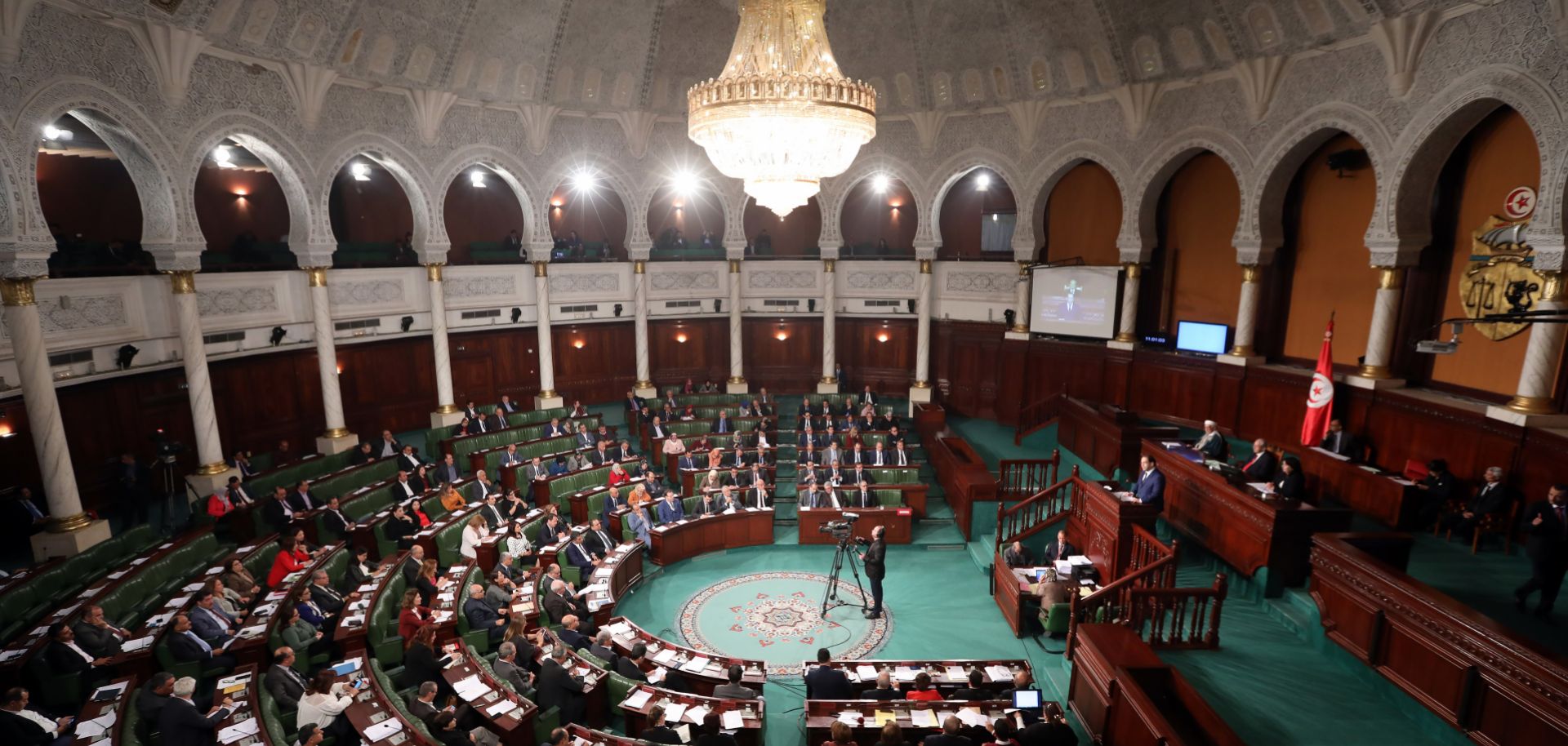ASSESSMENTS
Tunisia's Budding Democracy Faces Its Biggest Test
Aug 26, 2019 | 09:00 GMT

General view of a session for the 2019 budget proposal in Tunis, Tunisia.
(YASSINE GAIDI/Anadolu Agency/Getty Images)
Highlights
- Tunisia is entering a critical two-month election cycle, with successive presidential and parliamentary elections that will determine the next government.
- The executive branch's power over foreign and security policy will allow whoever wins September's presidential contest to shape Tunisia's future relationships in the Middle East and North Africa.
- Tunisians' deep disillusionment with the government, fueled by the country's chronic economic crisis, has driven significant political splintering, leading to a proliferation of independent candidates.
- The plethora of voices will make policy direction on economic and security issues harder to gauge in the years ahead.
Subscribe Now
SubscribeAlready have an account?
